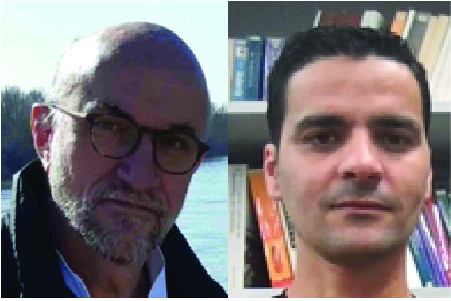Within the framework of the European University Alliance for Global Health (EUGLOH), we are glad to host the visit of Stéphane Espié and Abderrahmane Boubezoul, visiting DEI during this week (17-21).
Our guests will deliver two seminars on Friday, October 21, at 9:00, in Room B 009. You are all invited!
“Tools and methods for the understanding of road users behaviours”
By the Author:
“To be efficient and accepted, road safety counter-measures need to be defined thanks to scientific studies. The question is not only to imagine an optimal solution in the absolute, but to understand the real practices and, based on this knowledge, to design the measures (sensitivity campaigns, changes in Highway Code, changes in initial training curriculum or licence tests, infrastructure (re)design, vehicles homologations, etc.).
In our talk we will describe the tools and methods we promote and refined for decades to improve road safety, and their use in research projects. Our approach is systemic and is based on three pillars: instrumentation of vehicles for in-depth naturalistic studies, traffic modelling and simulation using a multi-agents system, and design of driving simulators to study driving behaviours. We will illustrate our approach using research projects we have conducted over these last years.
Stéphane ESPIÉ is a research director at the Gustave Eiffel University. He holds an Accreditation to Direct Research in Computer Science (HdR, Pierre et Marie Curie University, 2004). His main research areas are behavioural traffic simulation (MAS based), and the design of tools to study road user behaviours (driving/riding simulators and instrumented vehicles). He currently conducts his research in SATIE laboratory (Paris Saclay university) where he leads the MOSS (Methods and Tools for Signals and Systems) research group.
“Driving-Pattern Identification and Event Detection Based on an Un-supervised Learning Framework: Case of a Motorcycle-Riding Simulator”
By the Author:
“Analysis of human driving behavior aims to inspect drivers’ behavior in the real-world and in a virtual environment. The study of driving behaviors can be conducted in naturalistic situations or controlled experiments. Analyzing driving behaviors based on the data collected in naturalistic driving experiments or controlled experiments in the real-world or in a virtual environment is beneficial to fill in many of the knowledge gaps about driving behaviors and risk factors. I will present a multi-step framework for analyzing driving behavior on macroscopic and microscopic scales. The core step of this framework is based on unsupervised machine learning algorithms applied to driving-pattern identification and the detection of critical driving events using anomaly-detection algorithms. The detected events are interpreted and described by computing their feature importance using graphs centrality measures. This provides new insight into driving behavior by identifying the motives behind the driver’s actions.
Abderrahmane Boubezoul received his Ph.D. in Computer Science and Mathematics from University Paul Cézanne (Aix-Marseille III), France in 2008 and his Master’s degree in Virtual Reality and Complex Systems from Evry Val d’Essone University, France. Since 2008, he is a researcher at Gustave Eiffel University. His current work is about statistical signal processing and machine learning applied to road transport systems. He currently conducts his research in SATIE laboratory (Paris Saclay university) MOSS (Methods and Tools for Signals and Systems) research group.
